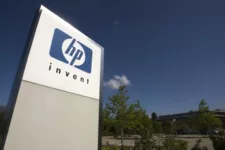I’m at HP Reinvent this week, a partner oriented event by the new HP company which is still currently focused on PCs, Printers, and related services and supplies. One of the concepts that founded the technology market in the middle of last century was the idea of a well-trained expert channel. Over the years this concept largely died out because time was tight and things like certifications for required talent were focused on techs but not sales. Sales people were expected to be selling but that meant that sales teams, particularly those tied to partners, but sadly also those directly employed by the hardware OEMs, lost critical skills.
This fall off in focus created two big problems, sales people increasingly didn’t really understand the technology they sold and they increasingly couldn’t understand the requirements of those they were selling either. Yes, they retained skills associated with closing deals but this increasing inability to fully understand the products they sold or the environments they sold into lowered their close rate and increased dissatisfaction and distrust with customer base who often connected unmet promises with untruthfulness rather than the reality that it was instead caused increasing ignorance.
To reverse this trend HP has implemented the concept of an HP University which has as validations certifications which assess the quality of the education the sales person has completed and returns those selling HP products to the experts they should have always been.
Let’s talk about this.
Content
One of the biggest problems for resellers in particular is selling solutions rather than selling parts. Particularly in the corporate space the IT buyer needs a vendor who is more of a partner who understands the problems the company is having and can provide a complete fix. What they typically get is that, regardless of the problem, the sale person pitches whatever product they are being spiffed (financially motivated) to sell.
The course material is self paced so that those with differing time constraints and different existing skills can proceed at their own pace rather than the more traditional, and less successful, one size fits all. They still have to pass a test to gain the required certification but the path to that certification is optimized for the individual not for HP.
Areas covered include: Creating a Win Strategy, Effective Client Communications, Meeting & Call Planning, Fundamentals of Negotiations, Introduction to Business Case Development, Social Selling, And Financial Acumen. Current certifications are in Business PCs, Printing Hardware, and Supplies. Specialization certifications include Sales, Technical, and Advanced Categories. Training is through both classroom and virtual classroom covering Strategic Solution Selling, Executive Level Selling, Introduction to Inside Selling, Hunting and New Business Development, Relationship Mapping, and Story Telling.
Overall this is a mix of information on products (printing and PCs), related technology, and sales process. While the effort currently doesn’t include marketing, that is a future expansion they are currently considering and it would complete the set.
Assessment
Generally something like the HP University should be a requirement for every vendor and Cisco has a similar service in place for their channel that has been around and successful for some time. Most of the other “University” efforts like Apple’s and IBM’s are focused more on internal employees than on channel partners but both areas are important because both internal and external people need to be formally trained in products, process, and successful practices to optimize the organization.
The fact that HP is funding an effort like this again is showcasing a currently atypical shift from tactical quarter to quarter focus on expenses and revenues to strategic investments focused more on future success. This is one of the indications of both a firm that has turned around and one with a board that isn’t overly heavy in hedge fund types who tend to force the firm to be excessively tactical.
This is therefore not only an important step to showcase the shape of HP’s business but a good indicator of the firm’s successful future.
Wrapping Up:
University efforts like this one from HP are critical to assuring that the channel can sell what HP makes optimally. This means they know both the products they are selling and the unique needs of the companies they are selling into. More important this allows them to step away from selling parts of a solution, or more common, throwing parts at a solution, to selling complete solutions, something that the old combined HP had issues with and HPE still has issues delivering. This is therefore a strong indicator that HP has emerged not only on the back side of a turn around but far stronger than both its parent and its initially seemingly more capable sibling. It also showcases a path to a best practice that more companies should emulate.








